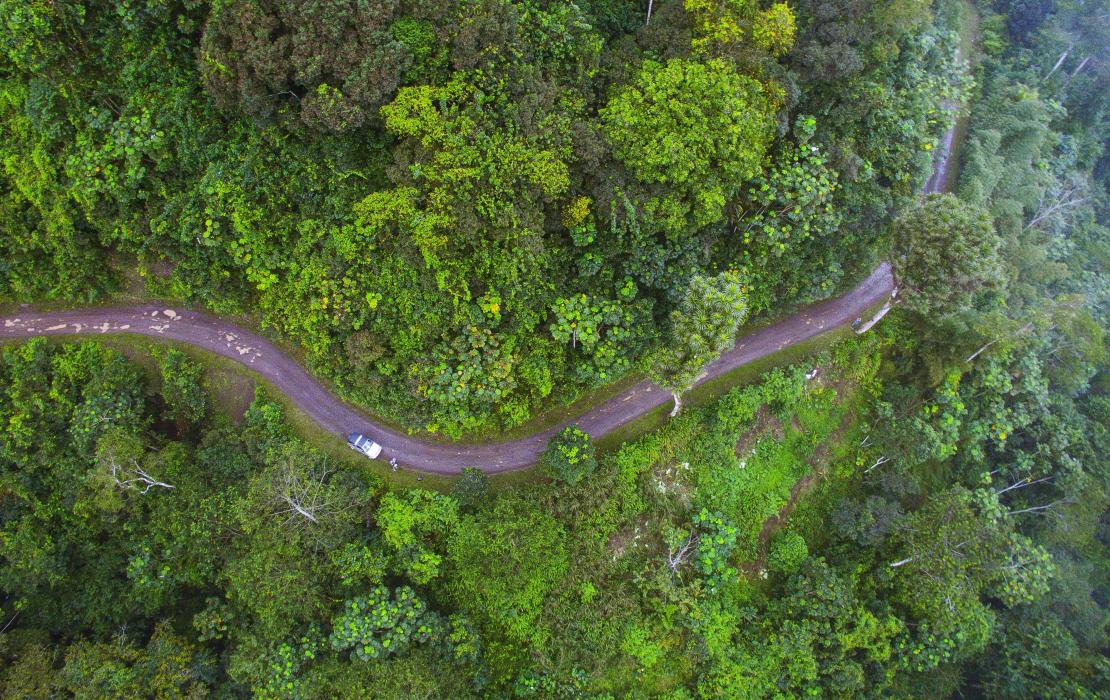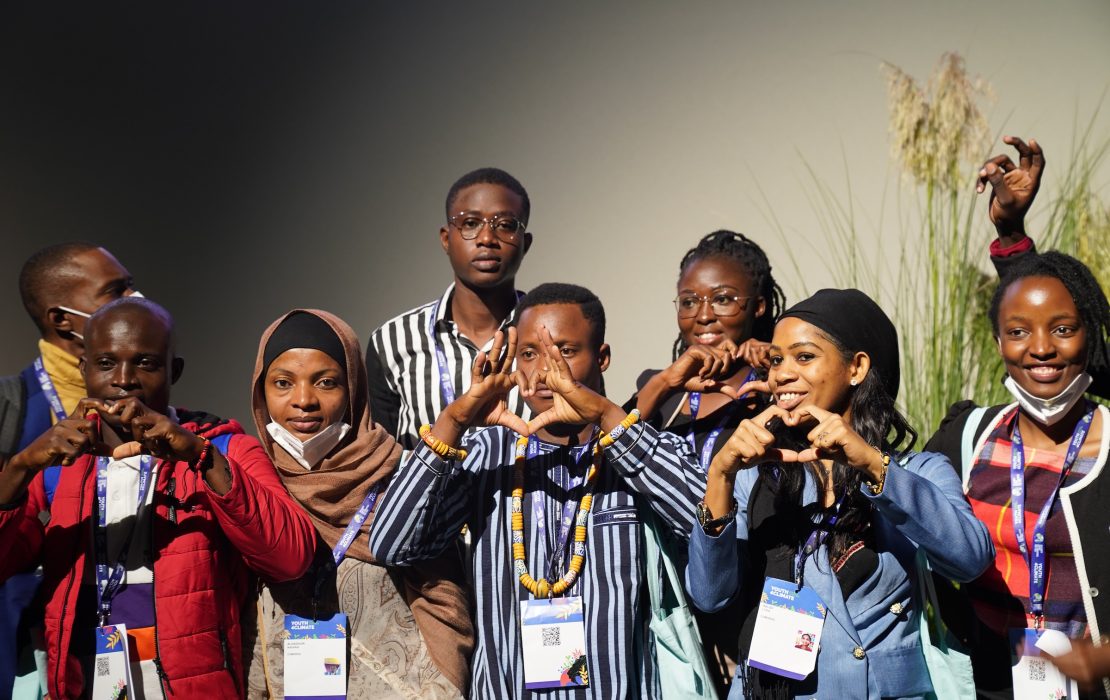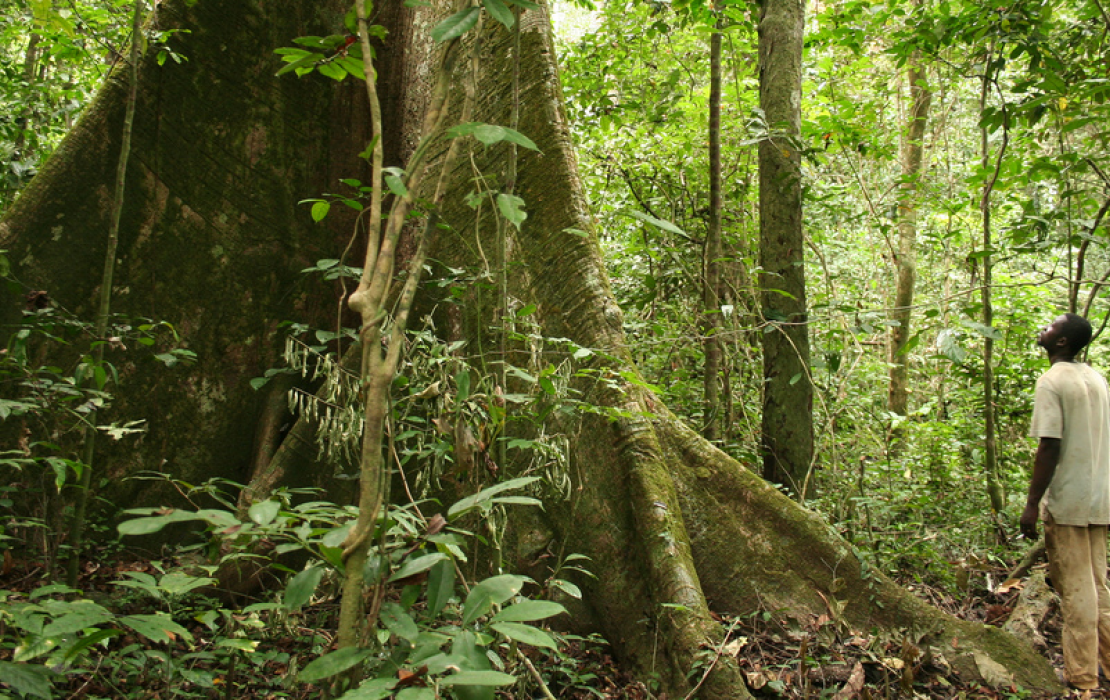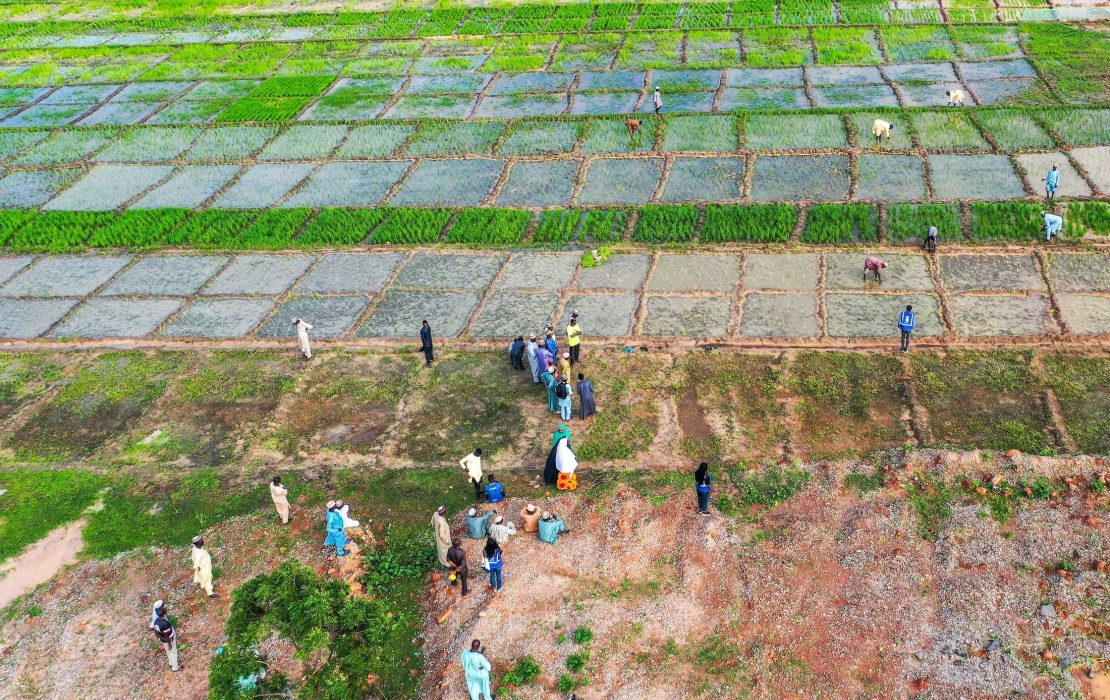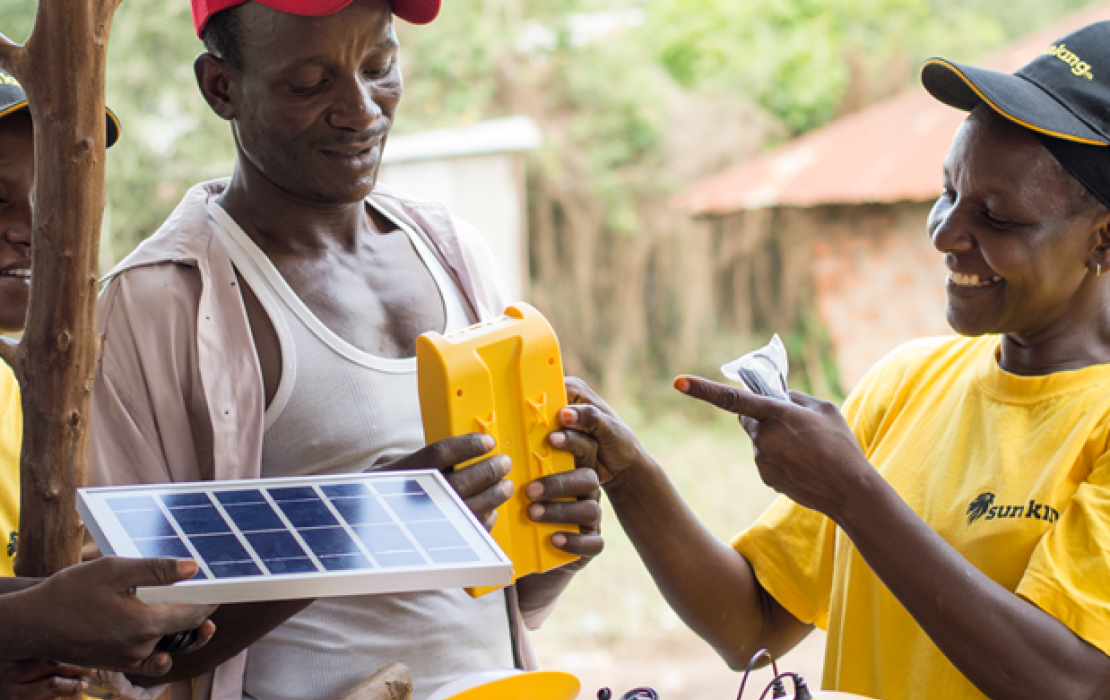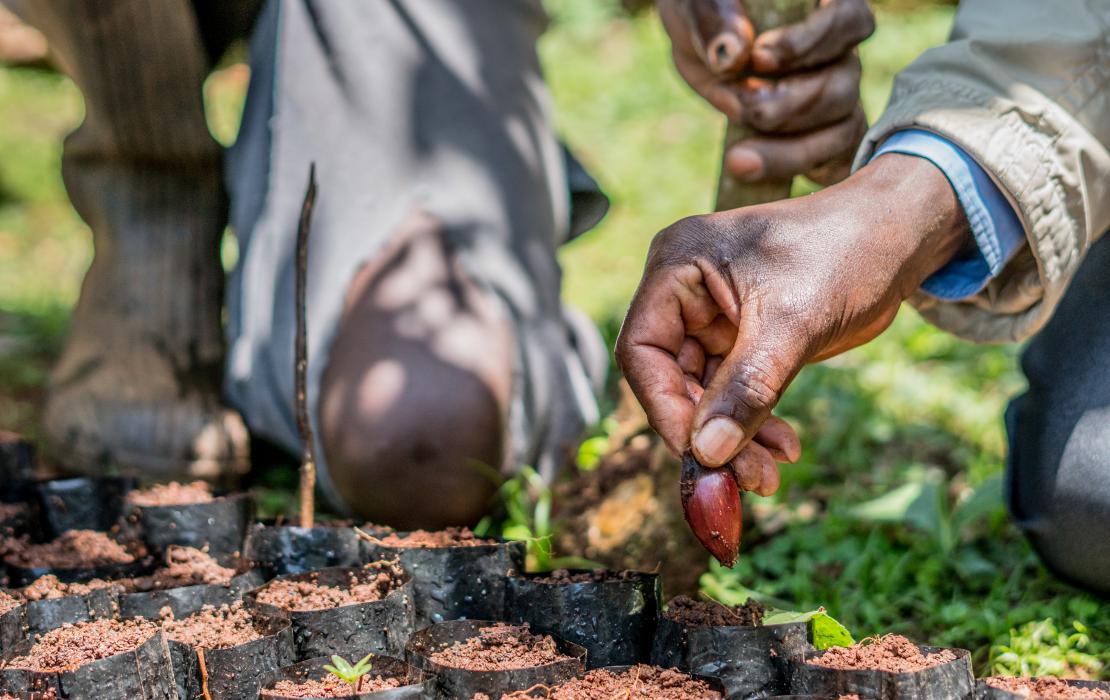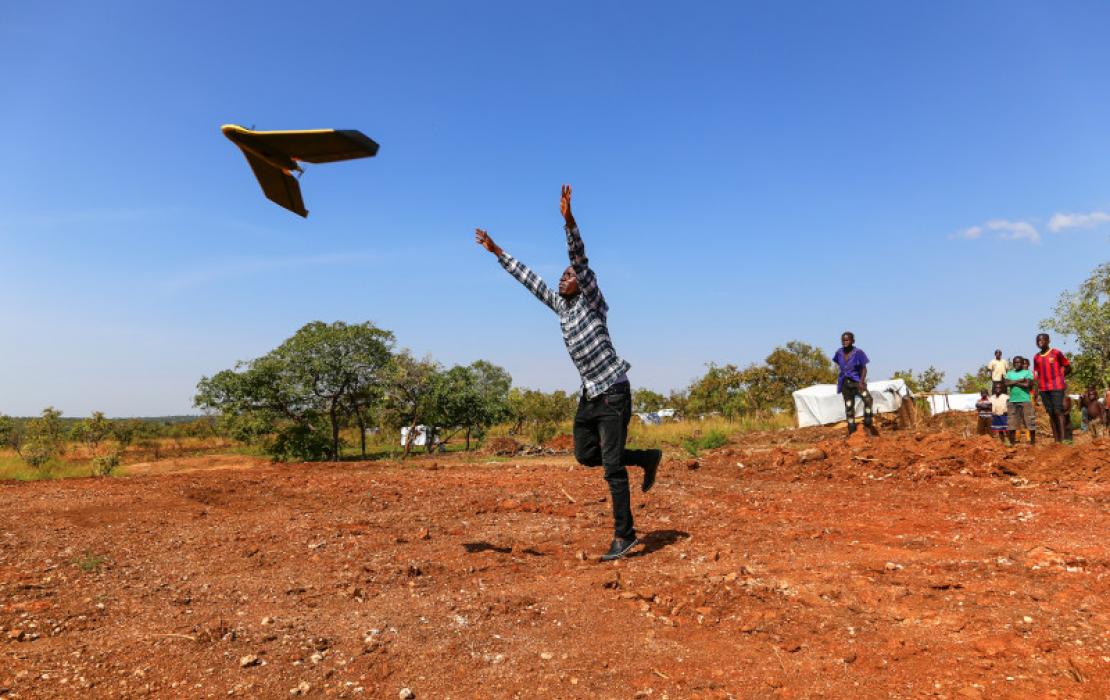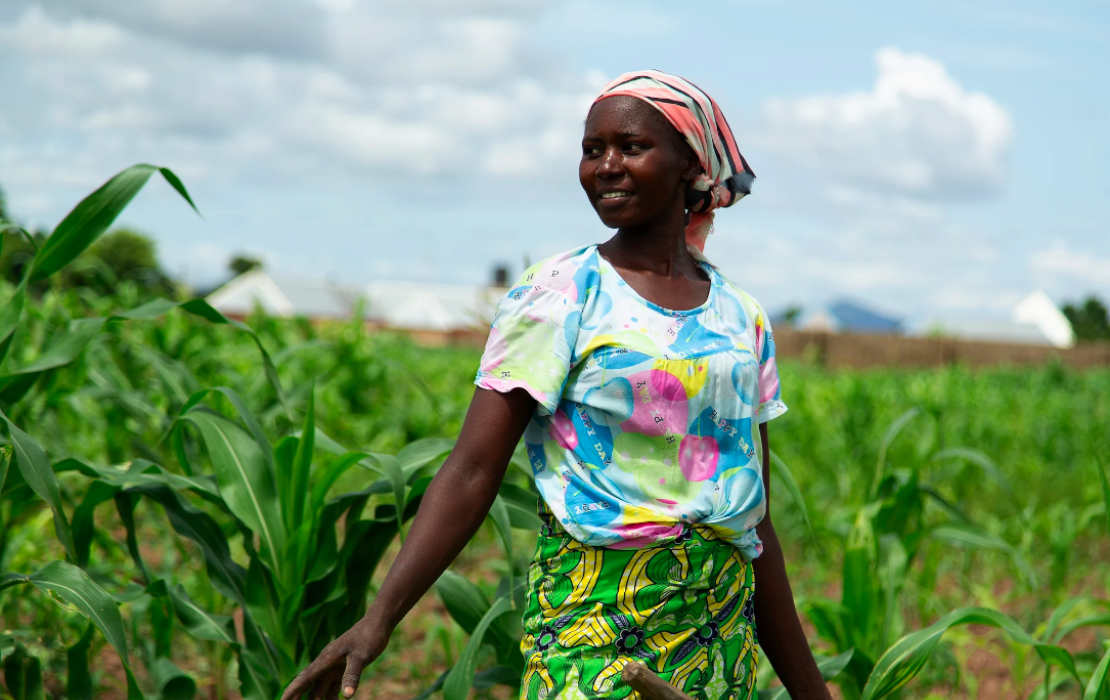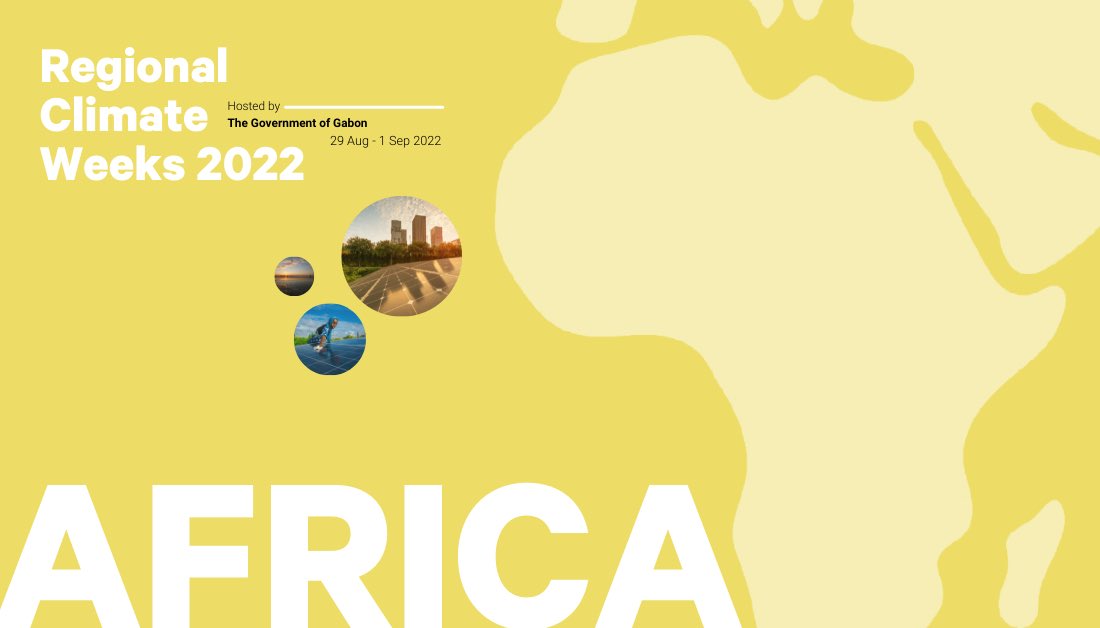
The Africa Climate Week 2022 took place from 29 August to 2 September in Libreville, Gabon, and was hosted by the Government of Gabon.
The Africa Climate Week 2022 (ACW 2022) offered an opportunity to advance regional climate action, collaboration, and identify sustainable responses to climate change.
Hosted by the Government of Gabon, ACW 2022 was organized by UNFCCC in collaboration with UNDP, UNEP, World Bank, and regional partners including the Africa Union, the Africa Development Bank (AfDB), the UN Economic Commission for Africa (UNECA) and UN Gabon.
The event was designed to build momentum ahead of pre-COP27 held in the Democratic Republic of Congo (DRC) and COP27 in Egypt. It offered an opportunity for African countries to lead the climate conversation, build new partnerships and highlight priorities for the region.
ACW 2022 brought together governments, the private sector, cities, Indigenous communities, youth and civil society. Sessions focused on priority areas for action to accelerate the implementation of the Glasgow Climate Pact decisions and the Paris Agreement including:
- Building resilience to climate risks
- Accelerating the transition to a low-emission economy
- Strengthening partnerships to solve pressing challenges
These discussions happened during thematic sessions organized into two tracks centered around the following themes: 1) striving for the 1.5-degree target set in the Paris Agreement with a focus on planning and policy for sustainable development and 2) attaining a resilient world with a focus on transformation through adaptation. Side and affiliated events will also align with these climate action themes. The Action Hub showcased what is possible in these thematic areas and shared success stories from the region.
Learn more about the event.
Explore the Africa Climate Week Output Report here.
UNDP Agenda
29 August
- Artistic and political crossroads - The climate crisis and the different forms of youth engagement and participation
Time: 12:45 – 13:45 local
Location: La Terre tent
Session partners: UNDP and YouthConnektGabon
This session focused on identifying barriers to youth participation in decision-making related to climate change and alternative artistic and activist solutions developed at the country level to sensitize and mobilize youth around climate change.
-
Accelerating and scaling up climate action through National Climate Funds
Time: 14:30-15:30 local
Location: L'eau tent
Session partner: UNDP
This event brought together countries to showcase examples of nationally established climate funds, discuss and share building blocks to develop institutional and legal arrangements, financial instruments and approaches conducive to mobilizing funding, discuss challenges, and the ways forward.
-
Africa Regional measurement, reporting and verification (MRV) and ETF Experience Sharing Dialogue
Time: 15:15-16:15 local
Location: Le Soleil – ground floor
Session partners: UNDP, UNFCCC Regional Collaboration Centre (RCC) Kampala, and NDC Partnership (NDCP)
The event had the following objectives and results: sharing experiences on existing MRV tools that have been developed to enhance reporting on NDCs and overall climate actions, creating a platform to share experiences among countries in the sub-Saharan Africa region on MRV and the possible integration of Article 6.2 reporting requirements under the Paris agreement, and identifying the capacity support available for developing functional MRV systems and transitioning to ETF at national level.
30 August
-
The State of Adaptation in Africa
Action Hub event
Time: 11:00-11:30 local
This event showcased the preliminary key findings of the Africa Adaptation Initiative (AAI) State of Adaptation in Africa report.
-
From a zero Biennial Update Report today to a first Biennial Transparency Report in 2024 – which steps to take for francophone countries?
Time: 14:00-17:00 local
Location: Mayumba (Mezzanine) room
Session partners: UNDP, Partnership on Transparency in the Paris Agreement (PATPA), Germany, Belgium, France, Global Environment Facility (GEF), Initiative for Climate Action Transparency (ICAT), UN Framework Convention on Climate Change (UNFCCC), Food and Agriculture Organization (FAO)
There are still around 15 francophone countries that have not yet submitted a Biennial Update Report (BUR). Yet, in 2024 developing countries may submit their first Biennial Transparency Report (BTR). What do these countries need to plan for the next steps, what are the capacity and data needed, and which technical and financial support is at their disposal? The Francophone Cluster invites managerial and technical staff involved in NDC implementation and reporting to the UNFCCC to share their views and solutions.
-
From a zero Biennial Update Report today to a first Biennial Update Report in 2024 – reflections with lusophone countries on which steps to take
Time: 17:00-18:00 local time
Location: Mayumba (mezzanine) room
Session partners: Lusophone Cluster by the Partnership on Transparency in the Paris Agreement (PATPA), Germany, Belgium, Capacity-building Initiative for Transparency (CBIT) Global Support Programme, UNDP Climate Promise
In 2024 developing countries may submit their first Biennial Transparency Report (BTR). What do countries need to plan for the next steps, what are the capacity and data needed, and which technical and financial support is at their disposal? The Lusophone Cluster invites managerial and technical staff involved in NDC implementation and reporting to the UNFCCC to share views and solutions. This session will be held in Portuguese.
31 August
-
Climate finance and capital markets
Time: 10:30-11:30 local
Location: Le Vent tent
Session partners: Citi Bank Gabon and UNDP
Leveraging Citi’s resources, experience and research as well as those of third party entities including UNDP, this side event will address the origin, evolution and outlook of climate finance resources being mobilised through international capital markets. The session will provide the opportunity to evaluate the progress of climate financing and to appraise the degree of mobilization of private sector capital in support of climate mitigation and adaptation measures. The event will allow a deep dive of market participants - issuers, investors, Development Financial Institutions (DFIs) and donors and the means and instruments to access private sector capital. The session will also emphasise the importance of data capture and disclosure as it relates to the impact and outcomes of climate-related investments.
-
Policy Dialogue with decisionmakers
Time: 14:00 –16:00 local
Location: La Terre tent
Session partners: Youth 4 Capacity (Italy and UNFCCC), Children and Youth constituency to United Nations Framework Convention on Climate Change / Action for Climate Empowerment (YOUNGO/ACE) Hub, moderated by UNDP
Round-table dialogues with policymakers
31 August and 1st September
-
Enhanced Transparency Framework (ETF) Dialogue
Location: off site
31 August: Policy exchange on transitioning to the ETF
1st September: Peer-to-peer engagement among transparency practitioners
Session partners: UN Framework Convention on Climate Change (UNFCCC), Initiative for Climate Action Transparency (ICAT), UNDP and other partners
The Regional Dialogues on the Enhanced Transparency Framework (ETF) are organized in conjunction with the different Regional Climate Weeks. They represent an opportunity of bringing together different stakeholders from the public and private sectors to discuss the various aspects, challenges and opportunities related to climate action and transparency, and exchange knowledge, experiences and lessons learned.
1st September
-
Integrating the principle of just transition into NDC/LTS to accelerate climate ambition
Time: 9:00-11:00 local
Location: Franceville - ground floor
Session partners: UNDP, UN Framework Convention on Climate Change (UNFCCC) and International Labour Organization (ILO)
This event aimed to present the key conceptual framework and guidelines for just transition and its enabling role in accelerating ambitious climate action. The event brought together countries to share experience of integrating the principle and process of just transition into Nationally Determined Contributions/ Long-Term Strategies (NDC/LTS) and discuss challenges and the ways forward.
-
Africa’s Public Expenditure on Adaptation
Time: 10:15-12:15 local
Location: Le Vent tent
Session partners: UNDP, African Union Commission (AUC), Collaborative Africa Budget Reform Initiative (CABRI), Climate Policy Initiative (CPI), NDC Partnership (NDCP), Commonwealth Secretariat
The objectives of this event was to discuss the initial estimates of the current spending on adaptation by African governments and international partners based on the 2018 APEA report, interrogate the methodology used in the 2018 report and solicit stakeholders’ views to update the analysis, and discuss the usefulness of this research and complementarity with other regional analyses.
-
Youth4Capacity #2 – RES4Africa Youth panel
Time: 11:00-12:00 local
Location: Libreville II (mezzanine)
Session partners: RES4Africa (Renewable Energy Solutions for Africa) and moderated by UNDP
The event showcased youth experiences in the renewable energy sector in Africa.
-
Strengthening adaptation and climate resilience in Africa through NDCs: Empowering countries to raise climate ambition
Time: 16:30-17:30 local
Location: L’eau tent
Session partners: UNDP, UN Framework Convention on Climate Change (UNFCCC), NDC Partnership (NDCP)
The objective of this event was to showcase UNDP's service offer to support the NDC revision/update process and implementation, and how this offer helps leverage national efforts to raise climate ambition in Africa to move from pledge to impact.
